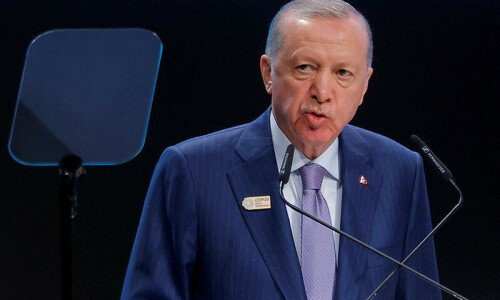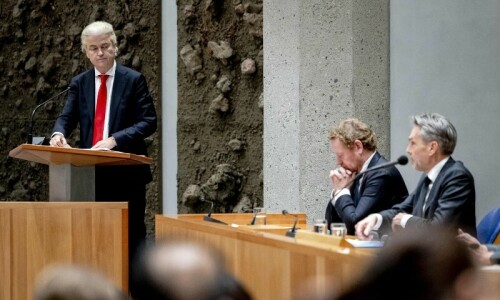VENICE: The Venice Film Festival got off to an explosive start on Wednesday with the premiere of 3D space movie "Gravity", teaming George Clooney and Sandra Bullock as astronauts imperiled by a botched Russian missile shot.
Twenty films, including five from the United States and three British ones, are in competition for the Golden Lion trophy that will be awarded at the end of the 70th edition of the world's oldest film festival, on September 7.
"I hate space," Bullock's astronaut character Ryan Stone says midway through what essentially is a Clooney-Bullock two hander in which their shuttle is destroyed by an avalanche of space debris triggered by a Russian missile strike on a spy satellite gone horribly wrong.
She does not learn to love space, but Stone, a scientist who has been grieving over the death of her four-year-old daughter, has a spiritual rebirth, thanks in part to the ebullient resilience of Clooney's country-music-loving Matt Kowalsky and to her discovering her own instinct to survive.
At the post-film news conference, Bullock and Clooney said the film, directed by Mexico's Alfonso Cuaron, had been one of the most demanding in which they had ever appeared.
"Physically and mentally it was the craziest, most bizarre, challenging thing. But you find what you're made of," Bullock said.
In possibly the strongest female space acting performance since Sigourney Weaver killed the female reptile in "Alien", Bullock overcomes waves of debris that destroy pretty much everything in orbit as Stone and Kowalsky embark on a roller-coaster ride from hell to get back to earth.
There is no sound in space, the movie says in its opening titles, but the pounding soundtrack, and the 3D explosions on board one disintegrating space vehicle after another strongly suggest otherwise. There is more suspense in the movie's one and half hours than any of the online trailers have suggested.
David Rooney, critic for the Hollywood Reporter, told Reuters of "Gravity", which is not in competition: "You sit there watching completely immersed in this atmosphere and puzzling over how they achieved all this."
Creating a world
Italian director and festival jury head Bernardo Bertolucci, at the opening ceremony which featured stars and models parading into the festival palace on the Lido island to the sound of a band and screaming fans, said: "Perhaps cinema cannot change the world, but we know that cinema can create a world."
Clooney, asked whether it had been lonely working on a set where often he or Bullock were seen alone, said they had to stifle their natural reactions in order to portray their characters, and they sometimes felt the peril was real.
"There was a giant piece of machinery I think they used to build cars with that would come flying towards you at 40 mph," Clooney said.
"I think the great challenge we found, as opposed to feeling alone in space, was to not react when this 4,000-lb machine came flying at you and would stop this close."
Bullock's character Stone, who left behind a job as a hospital lab doctor on Earth, appears alone on-screen for much of the film.
The "hell of a ride" she takes on the shuttle Explorer, complete with corpses, fireballs and faulty re-entry parachutes, follows the long drives she used to take after the death of her daughter was communicated to her in a telephone call.
"I was driving when I got the call, so now I just ... drive," Stone tells Kowalsky as the two traverse the galaxy.
Floating in space is an obvious metaphor for a character losing her way on Earth, co-writer and director Cuaron said.
"You have a character who is gripped in her own inertia: on one hand she has life, she has planet Earth, human connections and on the other side she's drifting," he said.











































Dear visitor, the comments section is undergoing an overhaul and will return soon.